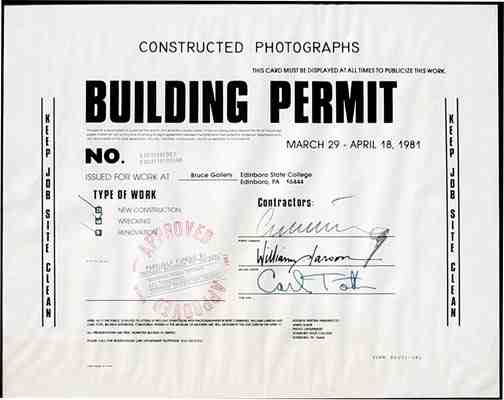When beginning a construction project a building permit is required to ensure your project complies with local standards and regulations. It is an official approval issued by the local government agency that allows you to proceed with a construction or remodeling project on your property. It is intended to ensure that the project plans to comply with local standards for land use, zoning, and construction. These standards are intended to ensure the safety of current and future owners and occupants and to provide enforcement of zoning and land-use policies. The Department of Buildings requires building permit applications, with accompanying construction documents prior to performing any construction. This assures that the project is completed in accordance with the local building codes and is safe to occupy upon completion. Once reviewed and approved, a building permit is issued to the applicant.
Here are some reasons why you should get a valid building permit:
- Enforces safety standards.
- Keeps your insurance valid.
- Adds value when selling your home.
- Is mandatory by the local government.
Specific issues that the building permit process may address include structural integrity of the framing work, zoning, sanitation, water, and sewer lines, fire protection, and electrical service.
Having the right permits for whatever job you need to complete is absolutely essential but you don’t have to go through the stressful and time-consuming process of obtaining them by yourself. Most Architectural firms know the ins and outs of obtaining different permits. They understand what needs to be done to obtain a permit, and then expedite the process so you don’t have to waste any time starting your new project.
Many firms have an in-house “Expediter” whose only job is to obtain building permits. They can often get permits more quickly than other applicants because of their experience and contacts with local permit agencies. If you hired one for your project, it is customary for them to “pull” the permit. Typically the person who pulls the permit is now responsible for construction following the code.
Once all of the necessary information has been gathered, steps are taken to make sure your application is being promptly reviewed. Your application will be carefully tracked through every step of the permit process and you will be updated until your permit is received.
Many homeowners fail to understand the importance of obtaining a valid permit. Unfortunately, it is fairly common for them to complete home improvement projects without applying for a permit, paying the application fee, or having the work inspected and approved. It may be possible that such projects can be completed with good quality and never cause problems but it is not good practice to try and bypass the official permit process. Here is why:
- When you try to sell your house, the buyers’ inspection may uncover remodeling or additions that were done without proper permits and they may not be completely up to code. This can prevent you from selling your house and may require that you undo the previous work and start again—this time with a permit. This can be time-consuming and expensive.
- In the event of a fire, structural collapse, or major plumbing problem, if it is discovered the mishap is the result of work that was done without the benefit of permit or inspections, it’s possible your homeowner’s damage and liability policy may decline to cover any or all of the damage.
Before your permit is issued, the agency will review the information and check that the project meets local building requirements. It may be required to see if the proposed building meets construction safety codes, fire codes, and accessibility laws. The environmental impact of the project on local waterways, wildlife, or plants may be considered. Depending on where you live, your project may also be reviewed by the historic preservation or urban planning committee. It may even be subject to, community hearings to discuss the impact of the project on local residents. If changes need to be made the permit authority will contact the applicant to request the changes. If the permit has been approved the applicant can pick up the permit. The building permit is typically valid for one year, though periods may vary. The permit is required to be displayed on the job site throughout the duration of the project.
As you can see, a building permit is a very necessary and important part of the development of your project. Consulting a professional to help you obtain your permit is highly recommended. They will make the process more palpable. In the long run, it will save you time, money, and unnecessary aggravation. Good luck with your project!



Leave a Comment